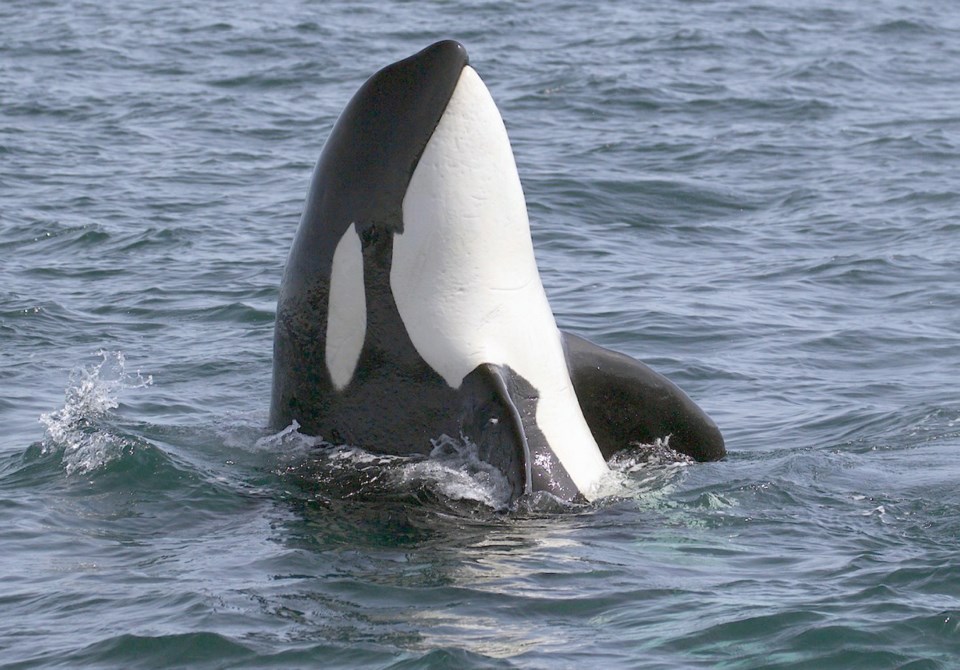The 29th anniversary of the Exxon Valdez disaster quietly came and went a few weeks ago. The lack of fanfare was ironic, as that calamitous event is more relevant than ever to the coast of British Columbia.
The spectre of Kinder Morgan’s Trans Mountain expansion, and accompanying increase in dilbit-laden tanker traffic, looms over B.C.’s endangered southern resident killer whales like the Grim Reaper.
To gain insight into what the southern residents would face if a catastrophic oil tanker spill were to occur in the Salish Sea, one only needs to look back at the miserable deaths suffered by Alaska’s killer whales almost three decades ago after the Exxon Valdez grounded on Bligh Reef, spilling more than 11 million gallons of crude oil into Prince William Sound.
Following the Exxon Valdez oil spill, the mortality rate in two pods of Prince William Sound’s killer whales skyrocketed. While 33 per cent of the AB resident population and 41 per cent of AT1 transient population disappeared within a year of the spill, most of the carcasses of the 22 missing whales were never accounted for. Both resident and transient pods were documented surfacing in the oiled waters, one of which (the AT1 transients) were photographed at the stern of the Exxon Valdez while it was still leaking thousands of gallons of oil into Alaskan waters.
The timing and magnitude of missing whales directly following the spill, plus the known exposure, suggests that oil was the cause of death. Scientists have hypothesized that these killer whales died from inhaling toxic oil vapours as they swam through and surfaced in the spilled oil.
Unfortunately, many of the whale mortalities were breeding or young females. In the case of the transient population, the loss of the females has meant no new births in nearly three decades. The transient pod is considered functionally extinct, as it will be gone when the remaining individuals die.
Southern resident killer whales are already threatened by declining salmon stocks, physical and acoustic disturbance from vessel traffic, high toxic-contaminant accumulation, and continued federal government inaction. Like Prince William Sound’s killer whales, this small population is now more vulnerable to extinction. When small populations experience random events such as food shortages, disease or oil spills, the loss of individuals (especially reproductive females) can have dire consequences.
In a Raincoast Conservation Foundation report, Our Threatened Coast: Nature and Benefits in the Salish Sea, we overlaid the southern residents’ critical habitat — areas where they hunt, feed and raise their young — with the results of Kinder Morgan’s oil-spill scenario near Turn Point at the northern end of Haro Strait. Kinder Morgan’s model is based on fall conditions and only runs for 15 days. Notably, experience from the Exxon Valdez oil spill was that oil travelled away from the accident site at Bligh Reef for at least 56 days.
A large oil spill near Turn Point has a 95 per cent chance of exposing resident killer whales if they are anywhere near Haro Strait or the eastern end of the Juan de Fuca Strait while oil contaminates the water. There is a 60 per cent chance of surface oiling within a 3,800-square-kilometre area centered on Haro Strait after a spill at Turn Point. Haro Strait has been one of the most routinely travelled areas in the Salish Sea for resident killer whales.
As expert interveners, Raincoast provided evidence to the National Energy Board on the substantial threats that the Trans Mountain expansion presents to southern resident killer whales. Our evidence included a population viability analysis, subsequently published in the peer-reviewed journal Scientific Reports, which not only looked at oil-spill risk, but also examined the effects of increased noise from Kinder Morgan’s oil tankers on the ability of the southern residents to successfully catch their prey.
The study found that even without an oil spill, the noise alone from the increase in tanker traffic substantially amplified the likelihood of extinction. Significantly, none of the parties presenting evidence to the NEB disputed this. Moreover, Kinder Morgan, the NEB and the federal government also agreed that even without an oil spill, the noise from oil tankers presents significant and unmitigable adverse effects on southern resident killer whales.
The National Energy Board recommended approval of the Trans Mountain expansion knowing the Kinder Morgan project would jeopardize the survival of the southern residents. Raincoast’s position in ongoing litigation is that this violated Canada’s Species at Risk Act. However, the NEB made an 11th-hour decision to arbitrarily truncate the Trans Mountain project at tidewater (Burnaby), inexplicably excluding impacts to killer whales from the environmental assessment.
Chris Genovali is executive director of Raincoast Conservation Foundation, Misty MacDuffee is Raincoast’s wild salmon program director, and Paul C. Paquet, PhD, is Raincoast’s senior scientist.



